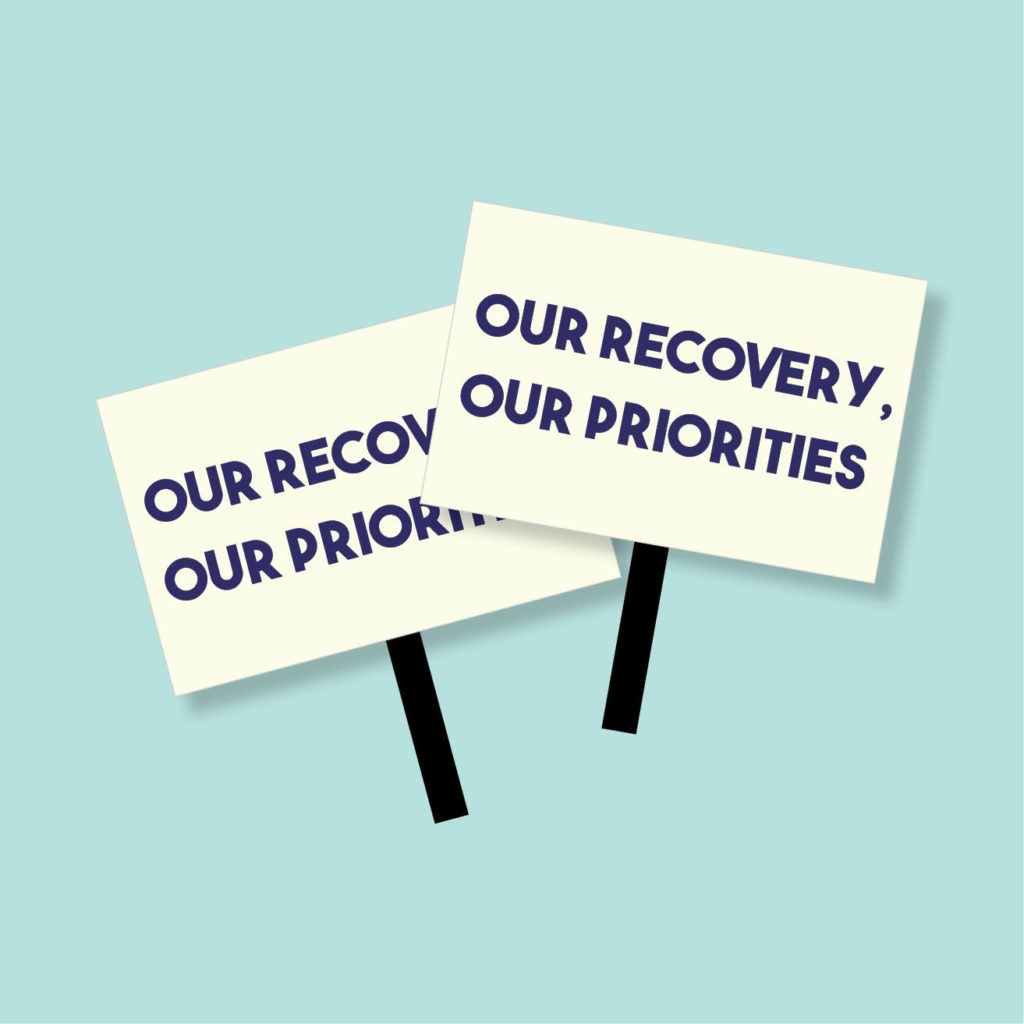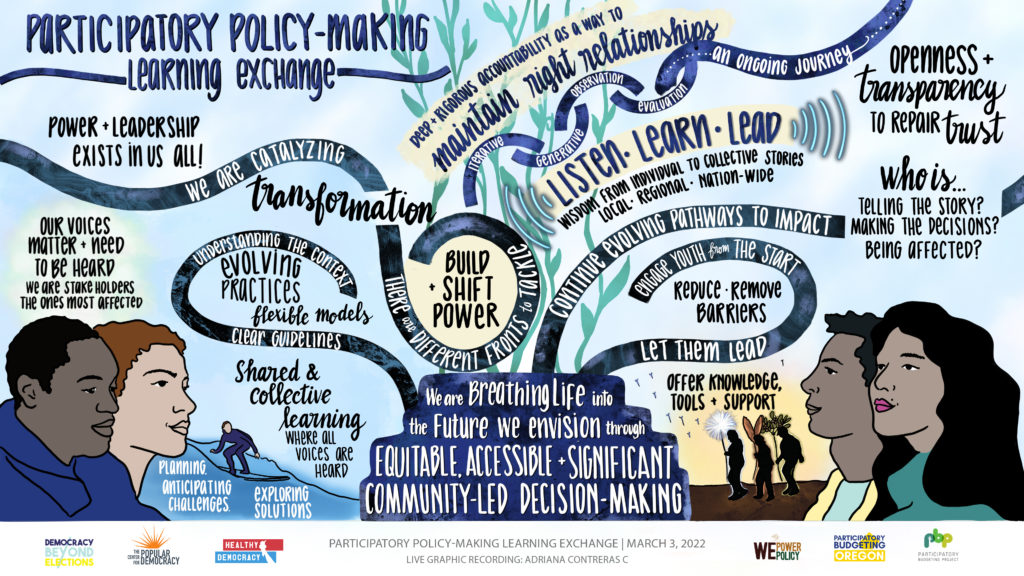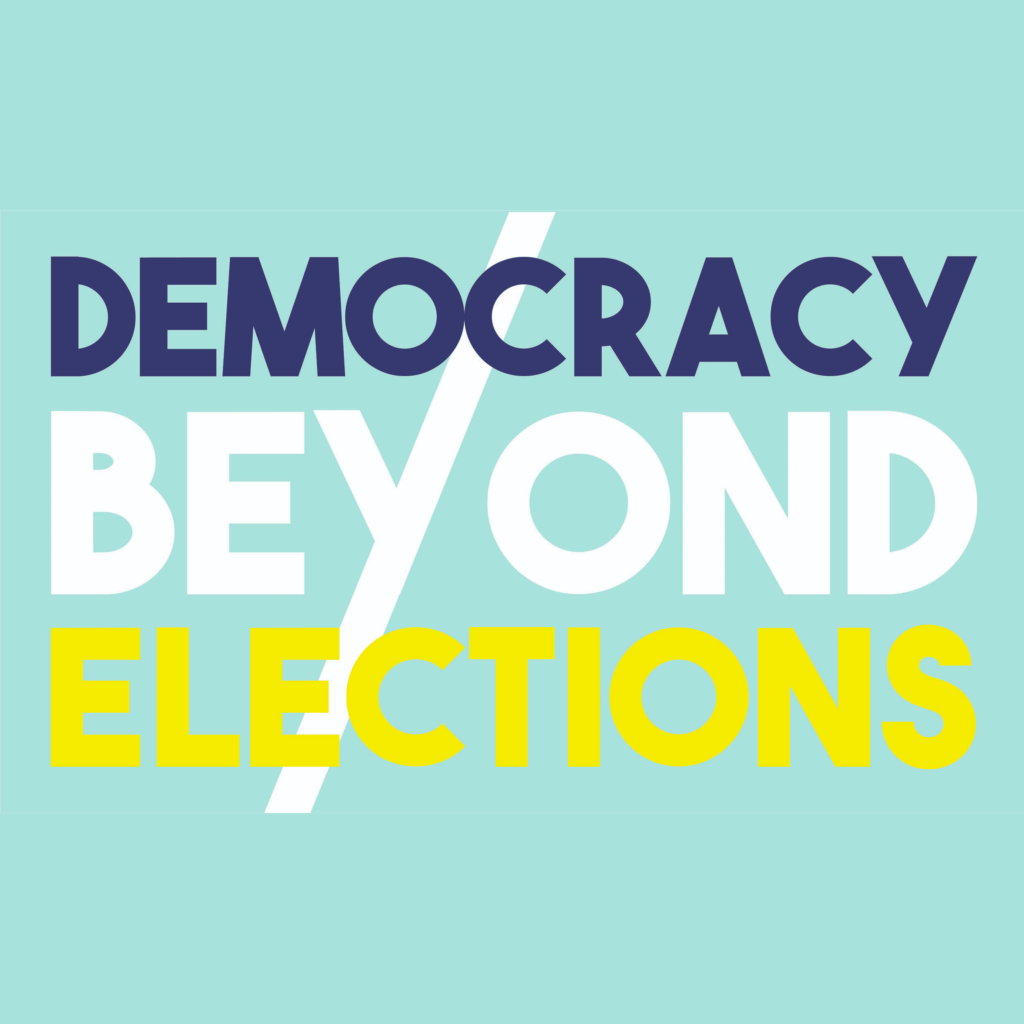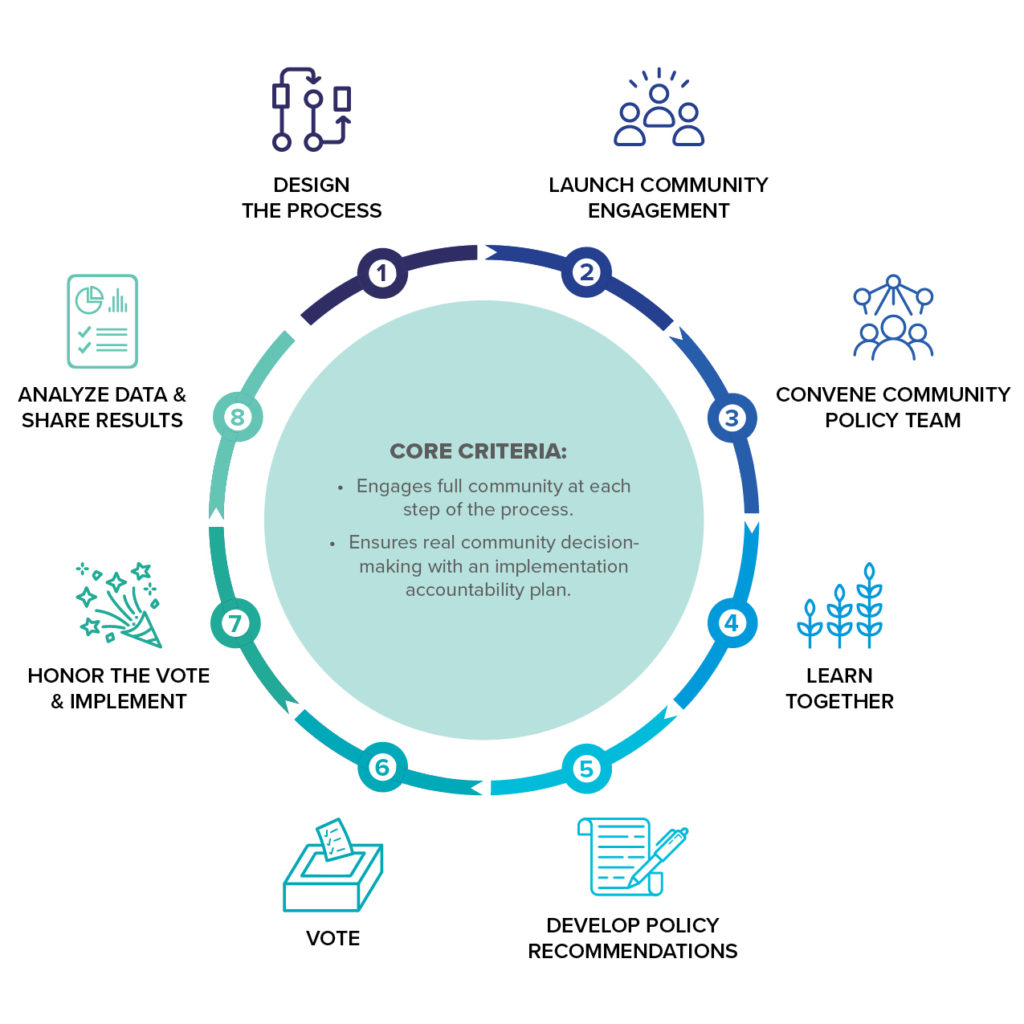Washington CAN’s Good Cause Eviction Policy
Washington Community Action Network (Washington CAN) is the largest member-based, grassroots community organization in the state of Washington that is working to achieve racial, gender, and economic equity.
In 2016, Washington CAN began an organizing effort in Federal Way, which is a city south of Seattle where gentrification and rising housing costs have forced many residents to relocate. Federal Way is also located in a swing district where millions of dollars have been spent intermittently to flip the district back and forth. Given the political context and the makeup of its residents, Washington CAN identified Federal Way as an important place for investment and committed to deep organizing there for a minimum of three years in order to build long-term infrastructure and power.
The Process
Through knocking on doors and having numerous conversations with residents, organizers clearly identified housing as a top issue for the community. After hearing story after story about neglectful landlords, derelict units, and resultant health problems for renters, Washington CAN began to organize around a rental housing inspection program. Modeled after the City of Seattle, the program selects properties to be inspected at random and provides a mechanism for community members to report on landlords who fail to fulfill their obligations.
However, organizers soon realized that the rental inspection program would be inadequate on its own, because when residents asked for repairs, landlords commonly responded by evicting them. Renters needed a law that would offer them real protection when calling out the bad behavior of landlords: a good cause eviction policy. The idea for this policy was born from Washington CAN’s community meetings, which always include three components: 1) story sharing, to help people understand that their struggles are shared; 2) popular education, to help people recognize the systems that cause poor people to have few options; and 3) collective decision making, which sometimes resulted in policy ideas.
The stories that members shared in these community meetings directly shaped the good cause eviction policy proposal. For example, one member shared a story about the eviction notice she received when her son turned 18. The landlord, who did not like the renter’s son, claimed that the son was an unlawful resident as soon as he became a legal adult. The good cause eviction policy directly responds by giving residents the right to live with their immediate family, no matter their age. Other residents had been evicted when their family members were deported, so the policy stipulates that, should the leaseholder be deployed or deported, the lease automatically goes to another resident living in the unit. In crafting the policy, Washington CAN took care to honor the wisdom of those closest to the problem: the people who knew exactly what kind of policy solutions would materially improve their own housing conditions.
Washington CAN decided to run a ballot initiative by themselves—although there were a number of partners who supported the work, they did not work in a formal coalition and didn’t contract with political consultants. While risky and challenging, they opted for this route because they wanted the opportunity to grow their organizational power and root the campaign in real grassroots community organizing. And, importantly, they wanted to ensure that the hard work of their members and staff could not be co-opted by outside consultants.
With a shoestring budget of $237,000, Washington CAN launched their ambitious policy campaign. To collect signatures, organizers went to some commercial sites but primarily did the painstaking work of going door-to-door to ensure that those signing petitions to qualify for the ballot were Federal Way residents. They often targeted places where they knew there were no registered voters. As a result of their door-knocking efforts, they registered 820 voters—many of whom had never voted before but wanted to register just so that they vote for the good cause eviction policy. Organizers were additionally able to identify about 600 people who requested in-language ballots, and the campaign had volunteers write handwritten letters in Korean, Vietnamese, and Spanish, from both elders and young people. In the letters, volunteers offered personal stories about why this ballot measure was important to them, welcomed people to the polls, and encouraged them to submit their ballots. They also strategically deployed white organizers to affluent waterfront properties, where many residents were Trump supporters. Remarkably, organizers were able to move a number of these individuals by having conversations about neighborhood safety and the destabilizing effects of having neighbors constantly leave because of evictions.
Obstacles Overcome
& Lessons Learned
The fight was not without plenty of opposition from the landlord lobby, which filed two lawsuits to disqualify the ballot measure, distributed dog whistle mailers, and ran commercials attacking the measure. But the initiative had bipartisan support, and Washington CAN raised the necessary funds to cover legal fees—without which the opposition may have successfully stifled the initiative.
In all, organizers knocked on 40,000 doors and texted 13,000 people to qualify for the ballot. On election night—before the ballots were fully tallied—they were ahead by a 10-point margin and had increased voter turnout by 7 points over 2017. More people voted for the good cause eviction initiative than voted for Federal Way City COuncil Members. This policy was a true participatory undertaking—from the identification of the need for the policy in the first place, to the development of its content, to its powerful passage. As a result of the initiative, hundreds of people who had never voted before registered and voted for a policy that would directly impact their everyday lives, which has built the infrastructure for future progressive wins in Federal Way. By running a grassroots campaign without the involvement of political consultants or other organizations with more resources, Washington CAN strived to raise the credibility of having community-center policies pass. Washington CAN members are now ready for more power, already setting their sights on winning these protections for renters across the entire state in the coming years.
